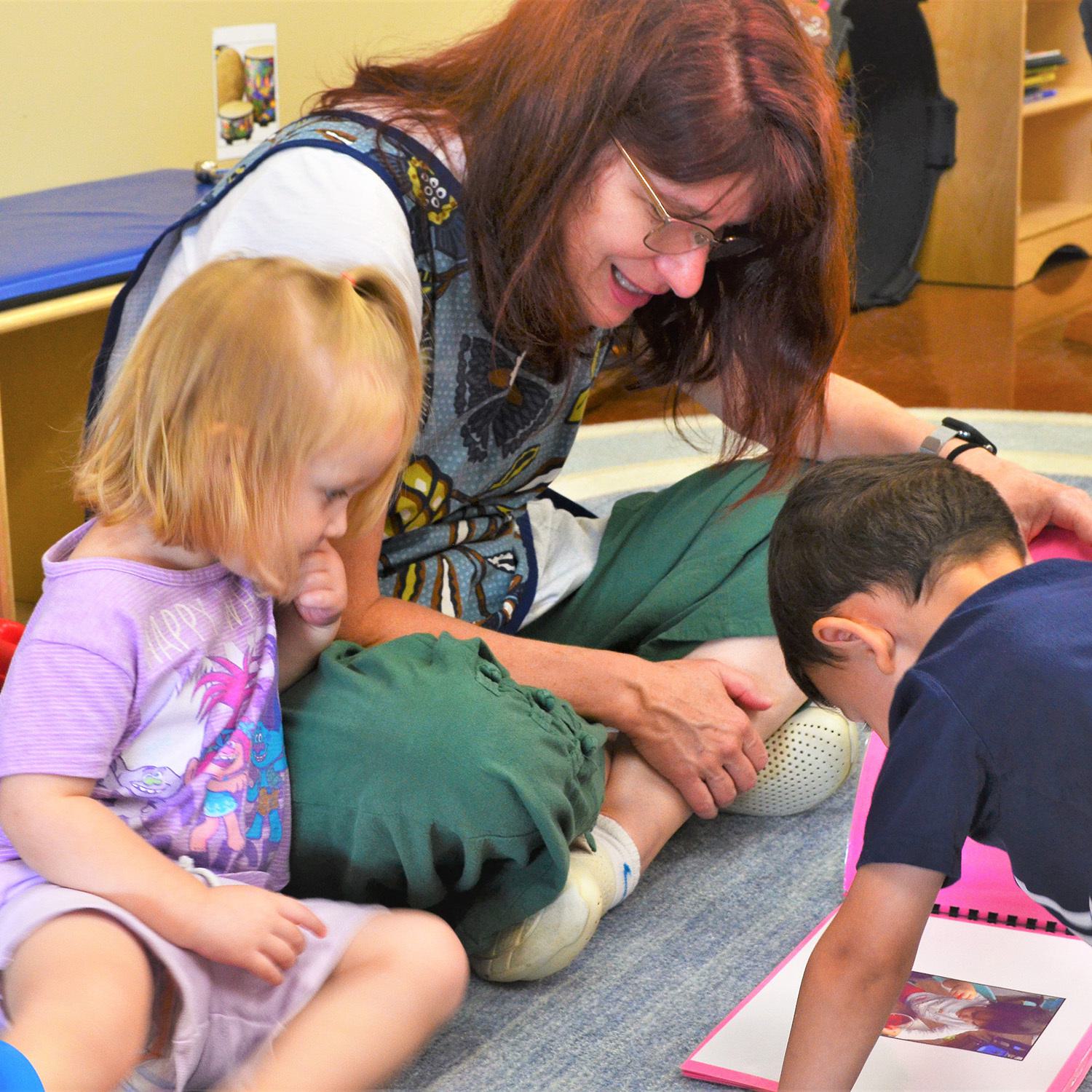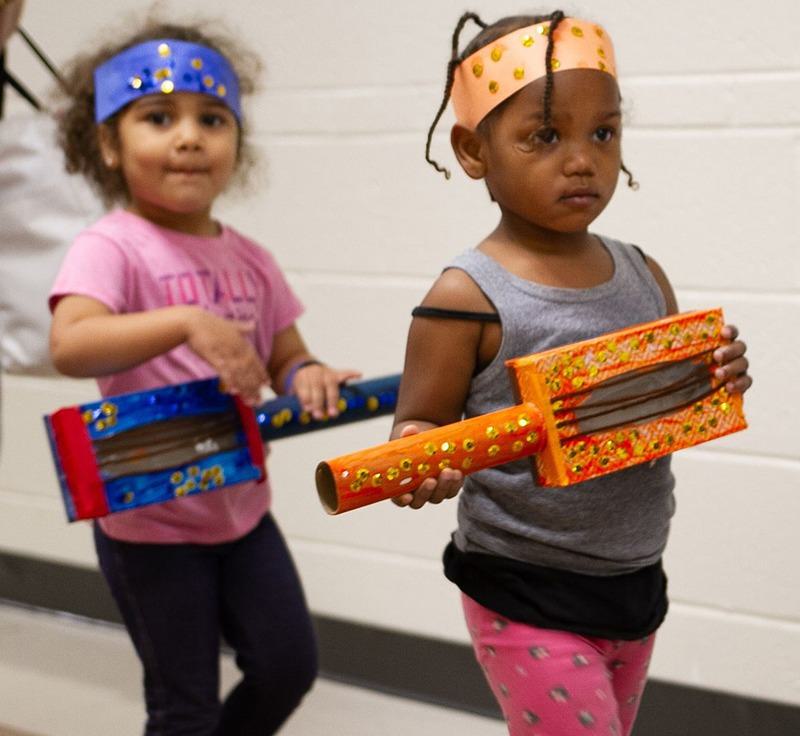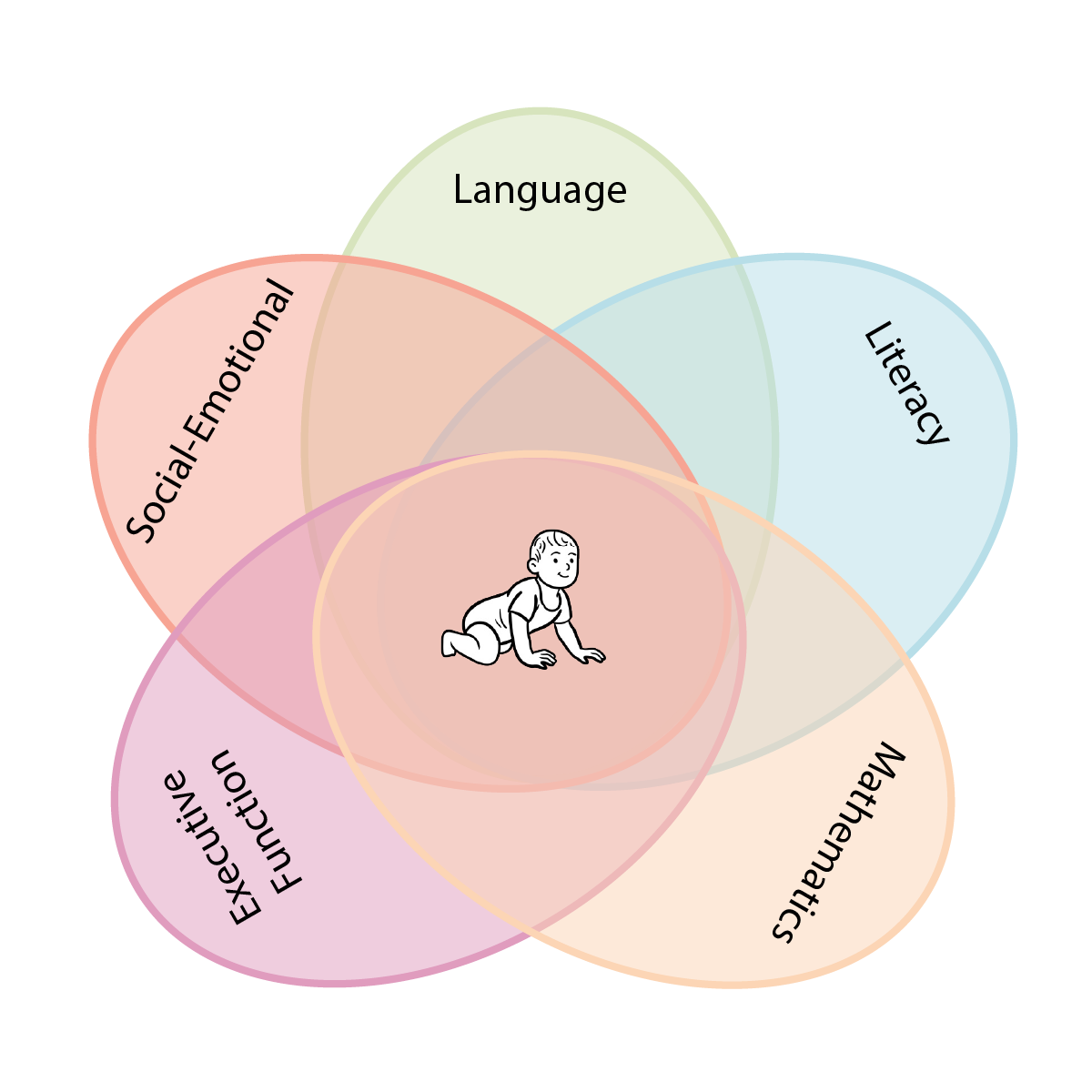Program Evaluation
To measure success, we collect and analyze different data modalities, during and after children are enrolled in our program.

Our strategic vision is that all children served by CAP Tulsa reach their full developmental potential by the end of third grade. Realizing this aspiration entails more than helping children to be academically ready in reading and math, but also requires nurturing the broader development of the ‘whole child’ to ensure that young children are emotionally and physically healthy, feeling safe and supported, and ready to be lifelong learners.
To achieve this vision, CAP Tulsa offers numerous opportunities to children and families. Namely, we offer a two-generation (2Gen) approach that seeks to support both the children and their family.
Our classrooms include highly-rated curricula that promote learning in all domains, and teachers collect, interpret, and use child data to drive lesson planning and individualization opportunities. Additionally, classrooms are filled with materials and books that detail an assortment of themes to promote learning for both English monolingual children, as well as dual-language learners.
Our schools include Instructional Coaches whose role is to promote learning of strong instructional practices and pedagogy. Our School Leaders annually devise school goals related to our strategic plan and regularly review classroom-level data, like attendance, formative assessments, and children receiving additional support services, to ensure progress is being made to meet school goals.
Our program includes teams whose jobs are to ensure our schools are supported and have the means to promote learning. We have a dedicated Teaching and Learning team, that facilitates professional learning opportunities with both new and tenured teachers. This team also regularly researches curricula, trainings, and other tools that may be supportive of strong classroom practices and promote a myriad of learning domains. We also have a dedicated School Leadership team, who ensures schools promote learning through strong instructional leadership, while also ensuring compliance measures are met.
Finally, to measure success, we collect and analyze different data modalities, not only while children are enrolled in our program, but also after they leave.

At CAP Tulsa, we prioritize measuring the impact of our program. Specifically, we have a designated team who partners with a local university to design and implement an evaluation of our early childhood program.
The goals of this evaluation include:
- Understand the growth children experience during an academic year
- Understand the growth children experience holistically while enrolled in our program
- Determine the differential impact of the program by various child and classroom characteristics
- Determine the relationship between child outcomes and specific classroom qualities and teacher practices
To meet these goals, assessors visit our schools in the fall and spring to collect data on our children. Observers visit classrooms in the winter to collect classroom-quality data.

It’s important that our evaluation meet the various needs and characteristics of our children (such as different home languages or engagement with various support services) and promote achievement within an assortment of learning domains.
For children whose home language is not English, we offer a language screener to understand their English language development, which helps us seperate the data for better interpretation.
We collect data within the following learning domains: Language, Executive Function, Social-Emotional, Mathematics, and Literacy.